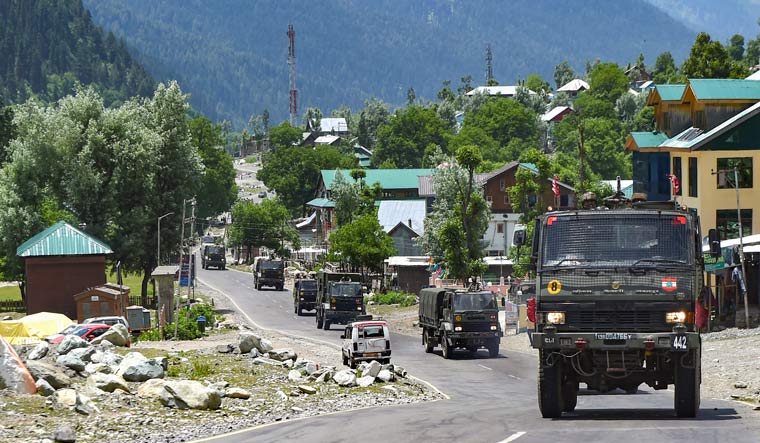Amid mounting tensions at the border, India on Wednesday told China that the unprecedented development at Galwan Valley in eastern Ladakh would have serious impact on the bilateral relationship. External Affairs Minister S. Jaishankar, in a telephonic conversation with his Chinese counterpart Wang Yi, said that the premeditated action from the Chinese side was responsible for violence and casualties in the region.
The Indian Army on Tuesday said 20 soldiers, including a colonel, were killed in a violent clash with Chinese troops at Galwan Valley on Monday night, in the biggest military confrontation between the two armies in over five decades. According to unconfirmed reports, the Chinese side, too, suffered over 40 casualties.
“The Chinese side took pre-meditated and planned action that was directly responsible for the resulting violence and casualties. It reflected an intent to change the facts on ground in violation of all our agreements to not change the status quo,” the Ministry of External Affairs said in a statement.
According to the statement, Jaishankar has conveyed to his Chinese counterpart India's protest “in strongest terms” on the violent face-off in Galwan.
This is the first official high level contact between the two countries after the worst violence on the border in over four decades.
“The EAM underlined that this unprecedented development will have a serious impact on the bilateral relationship. The need of the hour was for the Chinese side to reassess its actions and take corrective steps,” the statement said.
The MEA said the two sides should scrupulously and sincerely implement the understanding that was reached by the senior commanders on June 6. “Troops of both sides should also abide by the bilateral agreements and protocols. They should strictly respect and observe the Line of Actual Control and should not take any unilateral action to alter it,” it said.
“At the conclusion of the discussion, it was agreed that the overall situation would be handled in a responsible manner, and both sides would implement the disengagement understanding of 6 June sincerely. Neither side would take any action to escalate matters and instead, ensure peace and tranquillity as per bilateral agreements and protocols,” the statement further said.
China had already put out its version of the phone-call, where it continued to pin the blame on India. According to a Chinese Foreign Ministry statement, Wang Yi emphasised that both sides should strengthen communication and coordination to resolve their differences to maintain peace and tranquility along the border area.
The two sides agreed to deal fairly with the serious events caused by the conflict in the Galwan Valley, jointly abide by the consensus reached at the military-level meetings between the two sides, cool down the situation on the ground as soon as possible, and maintain peace and tranquility in the border area in accordance with the agreement reached so far between the two countries, the statement said.
“India must make sure similar incidents as that on Monday do not happen again. India must also not miscalculate the current situation, and not underestimate China’s determination to safeguard its sovereignty and territory,’’ a Global Times report quoted Wang Yi as saying.
Also read
- Beyond border acrimony, India and China agree to look at big picture
- ‘Need to focus on cooperation rather than conflict’: Rajnath Singh meets Chinese defence minister
- Jaishankar, Wang Yi discuss resuming India-China direct flight, Mansarovar Yatra
- With disengagement along LAC almost over, India-China troops exchange sweet | In pics
A large number of Indian and Chinese troops were engaged in an eyeball-to-eyeball situation in Galwan Valley and certain other areas of eastern Ladakh for last five weeks.
The Indian and Chinese armies are engaged in the standoff in Pangong Tso, Galwan Valley, Demchok and Daulat Beg Oldie in eastern Ladakh.
A sizeable number of Chinese Army personnel even transgressed into the Indian side of the de-facto border in several areas including Pangong Tso.
The Indian Army has been fiercely objecting to the Chinese transgressions, and demanded their immediate withdrawal for restoration of peace and tranquillity in the area.
Both sides held a series of talks in the last few days to resolve the row. On Saturday, Gen Naravane said both sides are "disengaging" in a phased manner.
Following the standoff in eastern Ladakh, the two sides have deployed additional troops along the LAC, the de-facto Sino-India border, in North Sikkim, Himachal Pradesh, Uttarakhand and Arunachal Pradesh in the last few days.


